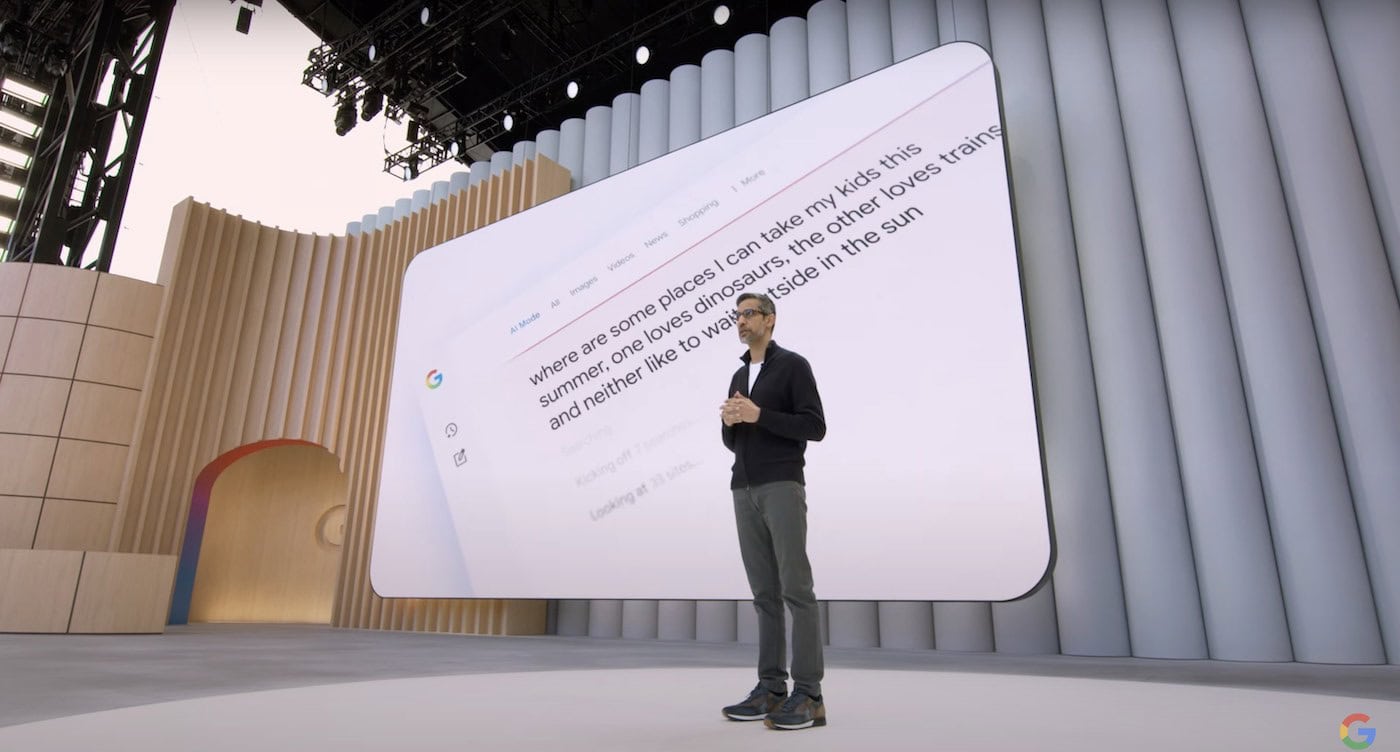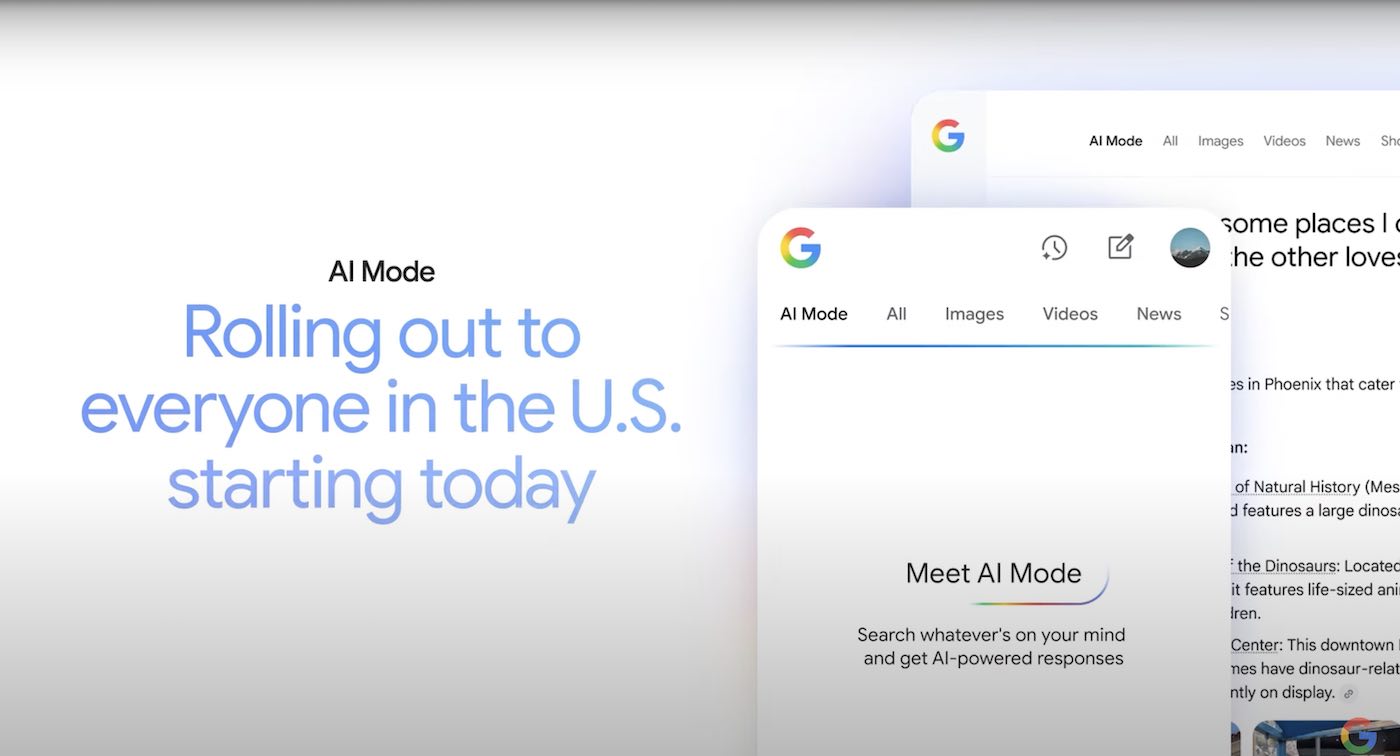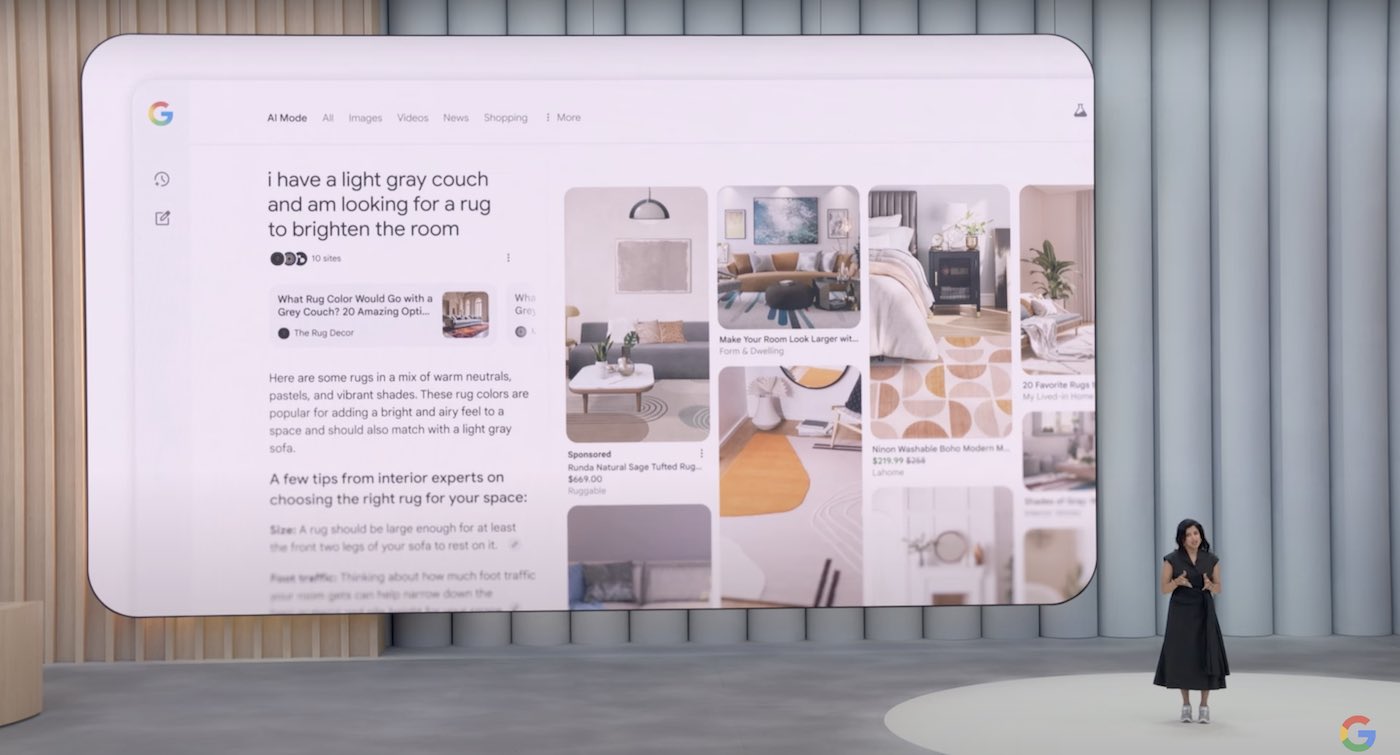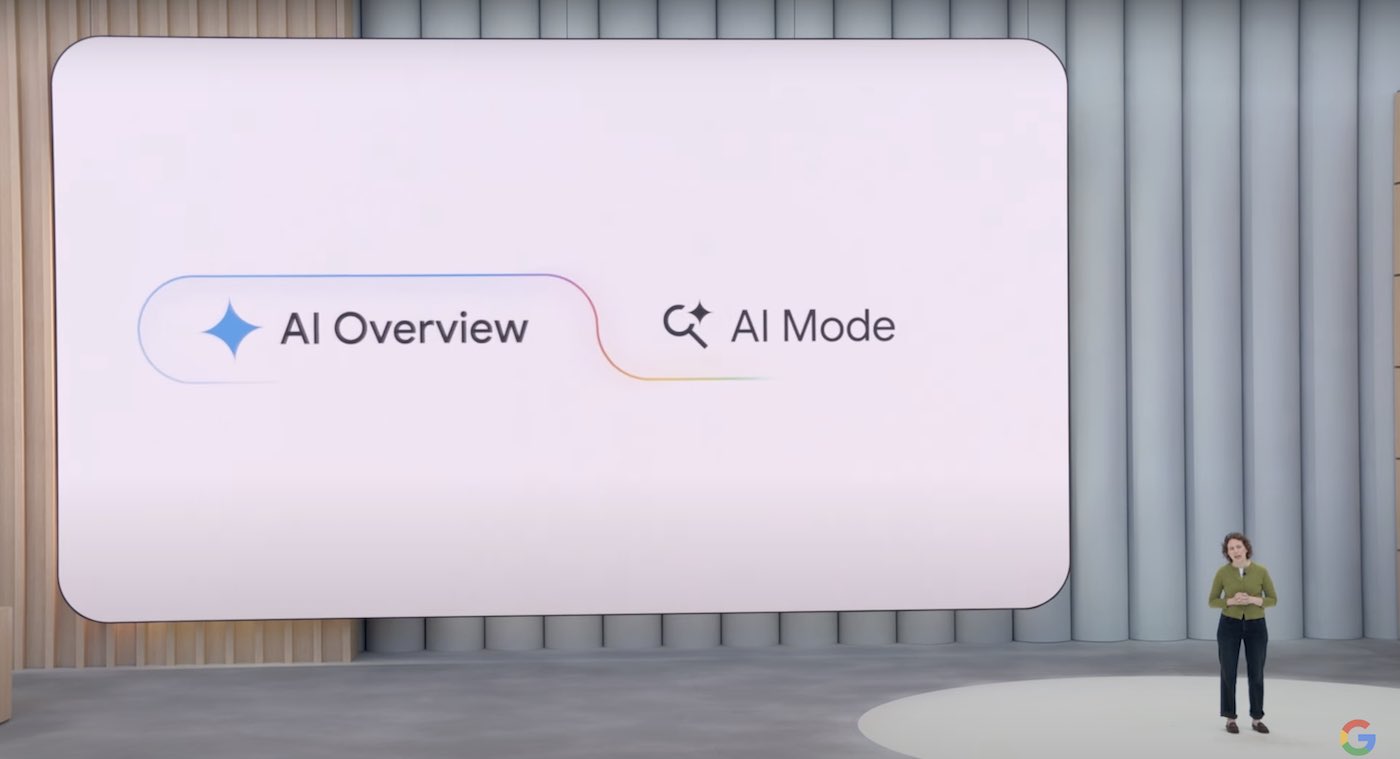Categories
Tags

After 27 years of Google, the era of search is over.

Google’s launch of AI Mode—its full generative search experience—marks the official end of traditional search as we knew it. If you’ve built your business on organic traffic from Google, it’s past time to reassess everything. This is not a drill. It’s the acceleration of a trend that’s been in motion since the rise of ChatGPT and Perplexity—and the gap between winners and losers online is about to widen.
Here’s what’s changing, why it matters, and what smart businesses need to do next.
Contents
How Does Google AI Mode Affect SEO & What Does It Mean for Your Business?
1. Expect Even Fewer Clicks.
With Google AI Mode delivering summarized answers directly in search, users no longer need to click through to individual websites to find what they’re looking for. This shift dramatically reduces traditional organic traffic—especially for businesses that aren’t cited as sources within those summaries. If your SEO strategy has historically depended on high-ranking links to drive conversions, you’re now competing in a compressed field where only the most authoritative, well-structured, and frequently updated content has a shot at visibility.
2. AI Summaries Are the New Trust Standard
Google is positioning AI Mode as a more trustworthy way to get answers—faster, more accurate, and sourced from what it deems reliable information. As users grow accustomed to these summaries, they’ll begin to trust them implicitly. That means your brand must show up not just as an option, but as the cited authority. If you’re not featured in these AI-generated answers, you’re not part of the decision journey. Authority, accuracy, and positive sentiment in your public presence now directly affect whether the AI even considers your brand worth mentioning.
3. This Is the Bridge to AI Agents—Buyers Won’t Be the Ones Clicking
Google AI Mode is more than a feature; it’s a transitional layer toward a world where AI agents perform tasks on our behalf. That includes booking appointments, requesting quotes, and even completing transactions. As AI tools take on more responsibilities for consumers, your website’s role shifts from a direct sales tool to an infrastructure asset—something that must be structured, optimized, and AI-readable so that automated systems can act without friction. Businesses that prepare for this future will gain a first-mover advantage as AI becomes the new interface for customer action.

4. The Search Landscape Is About to Fracture Even More
Google’s AI Mode is just the beginning of a larger arms race. As generative search becomes the norm, expect Perplexity, OpenAI, and others to roll out new features that reshape how users gather and act on information. This fragmentation means your content needs to be discoverable and structured for multiple AI ecosystems, not just Google. Businesses that only optimize for one platform will miss out on the broader shift. The new goal is to be recognized and cited across AI interfaces—wherever users are searching, asking, or delegating.
5. If You Don’t Shape the Narrative, AI Will Do It for You
AI Mode relies on the knowledge graph and real-world sentiment—reviews, press, social signals—to decide if your brand should be trusted. That means your online footprint must be comprehensive, current, and well-managed. To influence AI-generated summaries, your content must cover your domain from every angle, serve different audience intents, and reinforce expertise at every step. Businesses that fail to manage their reputation and content presence holistically will be excluded from summaries—or worse, inaccurately represented by incomplete or outdated data scraped from the web.
The New Mandate: Optimize for AI Mode & Own Your Entire Digital Landscape
If you’ve been following the AI SEO guidance I’ve shared since last summer, the strategy hasn’t changed—but the stakes have. What was once a forward-looking play is now the minimum standard for relevance. Google’s AI Mode accelerates the timeline. If you don’t fully control your brand’s presence across the web, AI will decide what you stand for—and whether you’re worth recommending.

This isn’t about ranking on page one anymore. It’s about being the definitive source—the one AI turns to when summarizing expertise, evaluating trust, or executing user intent. Just as Xponent21 has done, businesses that appear as the top sources and most recommended brands in AI will win. Everyone else will vanish from the conversation.
Here’s how to respond:
- Dominate, don’t dabble. Stop creating content to compete. Start publishing to own your niche. Your competitors should look small next to you.
- Publish more. That means volume—articles, guides, FAQs, thought leadership, video, podcast episodes. AI only recommends what it sees. Be everywhere.
- Stay current. Outdated content will kill your credibility. Update regularly.
- Be multimedia. Text alone is no longer enough. AI models favor brands that show up in multiple modalities: text, video, audio, imagery.
- Map the full journey. Understand every question your audience has before, during, and after they buy—and answer all of them.
- Inject novelty into the knowledge graph. Don’t just regurgitate. Offer new research, case studies, insights, or strong POVs. Be worth citing.
- Get your house in order. Clean up your LinkedIn. Fix your YouTube channel. Resurrect dead social accounts. The knowledge graph sees it all.
- Ask for reviews. Social proof is now search proof. Positive sentiment trains AI to recommend you.
- Expect bot traffic and AI-driven transactions. Soon, AI tools will start executing tasks—like booking demos or making purchases—on behalf of users. Make sure your site is built to accommodate that.
- Move Fast. The drop in organic traffic has brands scrambling for answers. Don’t be one of them. Partner with an agency that knows how to win to lock in top positions.
Prediction: Paid Placement Is Coming
We expect paid placement in AI results to roll out before the end of the year—likely starting with Perplexity, followed by Google, then OpenAI’s free tier. The monetization layer will favor those who are already cited. If you’re not in the conversation now, you’ll be paying a premium just to catch up.
Update May 27, 2025: Google announces paid ads in AI overviews at Google Marketing Live 2025.
Final Word
When my friend and AI collaborator Jim Washok recently asked me what I thought of Google’s AI Mode, I said this:
“How many times have you thought about Googling something… but opened ChatGPT instead to get a summarized, personalized answer? That’s what’s happening. And Google knows it.”
This isn’t a shift in technology. It’s a shift in behavior. If your business doesn’t evolve with it, you’ll be invisible.
You Can’t Afford to Wait to Execute on AI SEO
If your team doesn’t have time to master this, or your agency is still faking it with AI—let’s talk. At Xponent21, we’ve built a centralized AI content system that turns expert insight into an authoritative presence across every format. We don’t just publish more—we publish better. And we train AI models to cite our clients.
The new era of search rewards speed, scale, and precision and you can still have first-mover advantage in your industry.
If you’re ready to own your corner of the Internet, we’re ready to help you dominate it.
Let’s talk.

